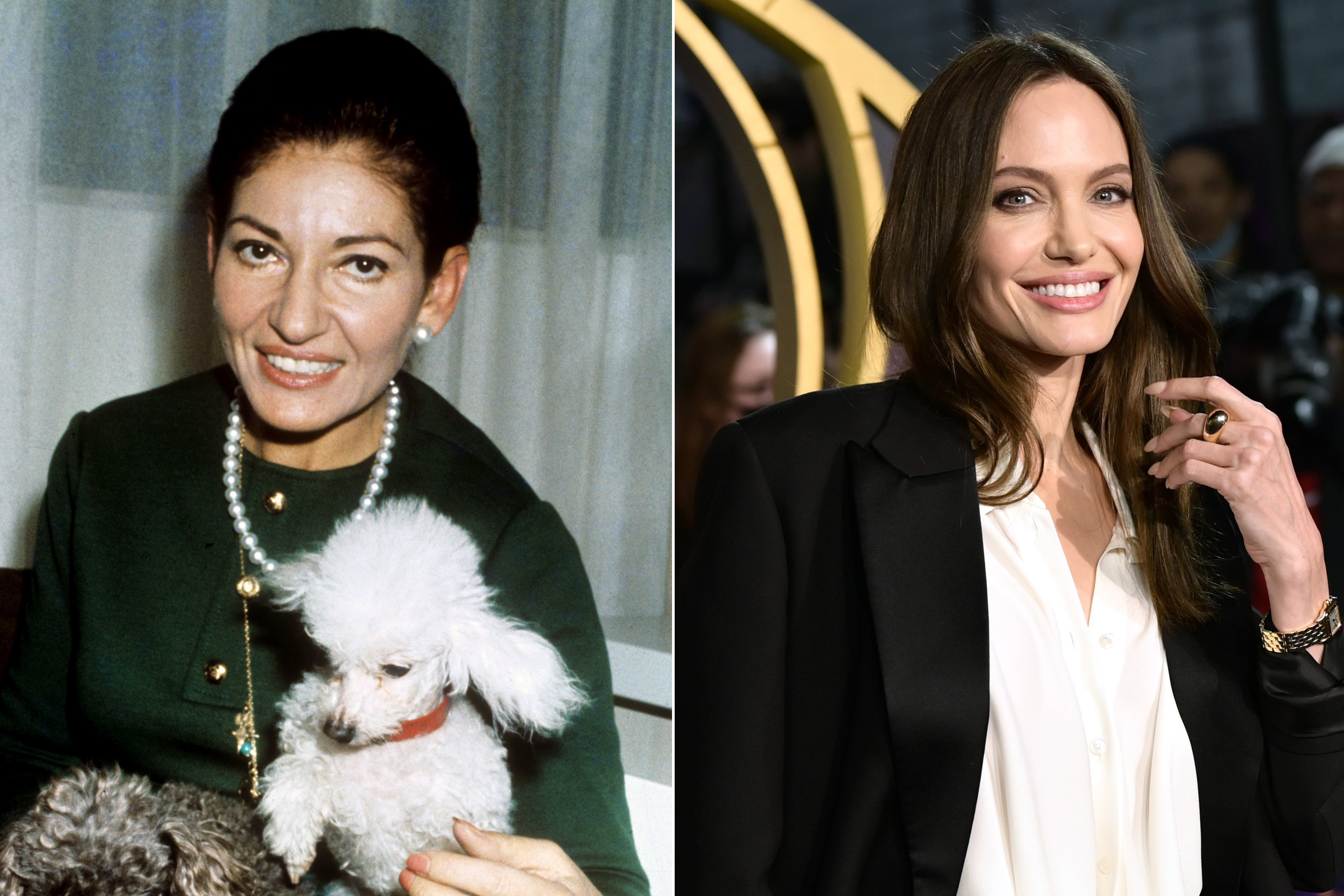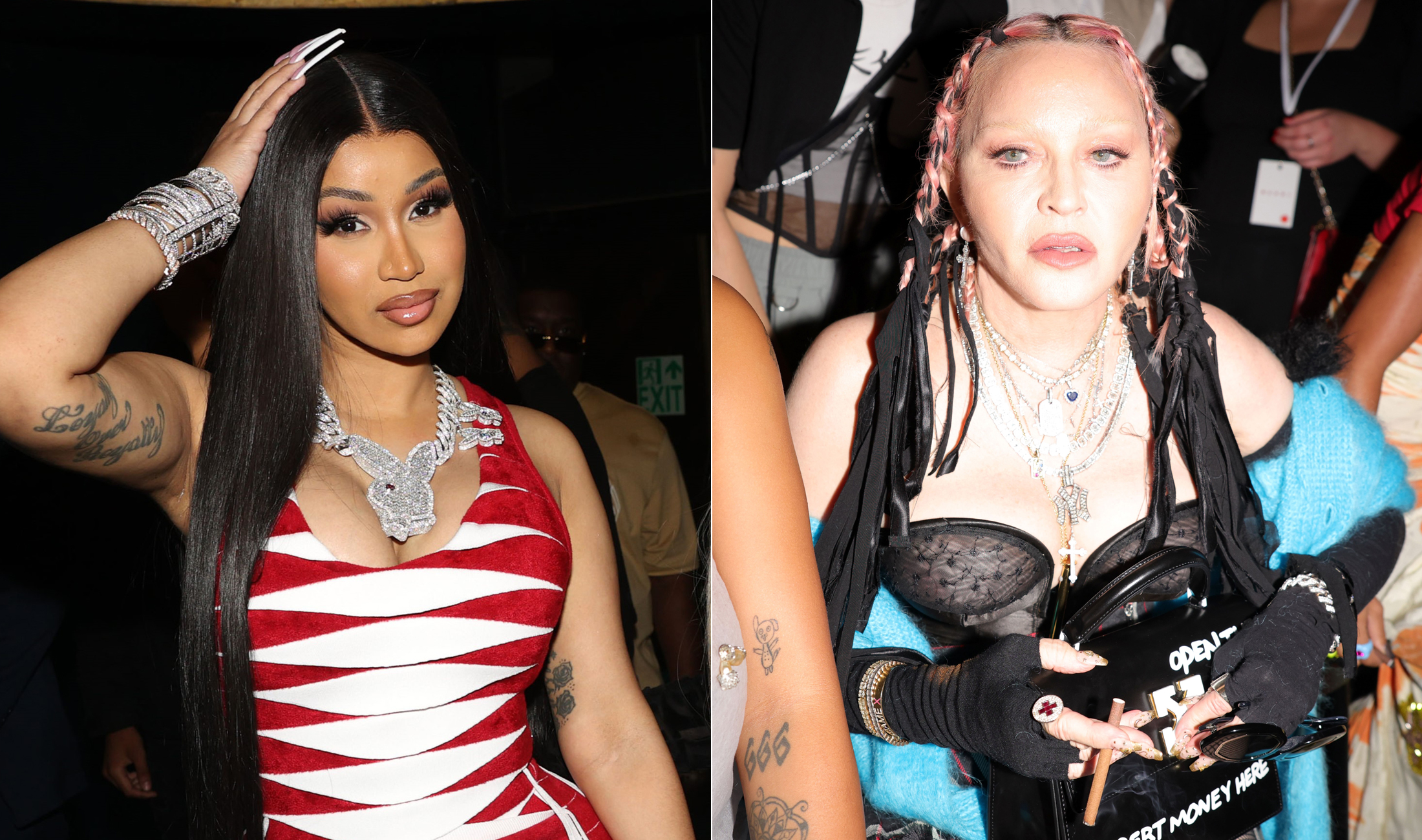Angelina Jolie is Pablo Larraín’s latest haunted woman



You don’t have to be perfect. You have to be unforgettable. Like Callas.
A writing professor said that to us, once. It’s stuck with me for nearly 20 years. Not only because it’s great advice—striving for perfection in art is a waste of time, it is invariably your quirks and failings that will make you distinctive—but also because we all had to google “Callas” after class. And then I felt stupid, because I had heard of Maria Callas, at least in that I knew she was an opera singer. I couldn’t pick her out of a lineup and had never actually heard her sing, but she was the most famous opera singer of the midcentury, she’s a touchstone cultural reference. I’ve heard her name in old movies and seen it in books, and so on. And googling her after class led me to one of those stories that always stuck with me: Maria Callas, voice gone, shut up in her Paris apartment, supposedly devastated after Aristotle Onassis dumped her to marry Jacqueline Kennedy, a 1970s Miss Havisham.
Pablo Larraín has lately made his career out of cinematically exploring complicated 20th century women at crucial turning points in their lives—Jackie Kennedy reeling from her husband’s assassination, paranoia seeping into her very core; Princess Diana suffocating in a toxic marriage, plagued by visions and loneliness. Larraín is profoundly interested in the image of a woman haunted by her own memories, perceptions, and feelings. Now, he will tackle Maria Callas in her “final days”, that time wherein the great diva was rarely seen, in poor health, and she had not performed for several years. Of course Larraín, who calls the film “a chance to combine my two most deep and personal passions, cinema and opera”, would choose Maria Callas as a subject. She’s one of his haunted women. And his cinematic muse this time around? Angelina Jolie.
That’s the other part of Larraín’s formula. He picks a subject and a muse, an established actress who will submit to his half-truths and cinematic imaginings. I am a huge fan of Jackie and Spencer, while recognizing these films do not work for everyone. They are challenging films centered on challenging women at challenging times in their lives, played by challenging actresses. Natalie Portman (Jackie) and Kristen Stewart (Spencer) are talented but not universally beloved by audiences. Angelina Jolie is also not universally beloved (and like Kristen Stewart, a great deal of that unfairly stems from romantic drama in her personal life). Jolie makes perfect sense as one of Larraín’s muses.
As for Jolie as Callas—I love it. And don’t worry about her singing, by the time of her death in 1977, Maria Callas’s voice was gone, “the Callas sound” was no more. This is why Callas’s story is so memorable: she was an artist of singular accomplishment, and then she lost her voice. She was unforgettable because she was imperfect, like Anna Pavlova and her “bad” feet, but for some reason not quite understood, her voice declined through the 1950s and 60s and was toast by the 1970s. She continued performing until 1974, but by then, it was widely acknowledged she had lost “it”. Opera is unforgiving, unlike Billie Holiday, whose singular voice was also damaged during her career, she couldn’t reinvent her sound to suit her genre (arguably, Holiday’s post-breakdown sound is more emotionally resonant than her earlier, more technical singing, which suits blues music well).
I’m sure Larraín won’t be able to resist the image of Callas as that Miss Havisham figure, hollowed out by heartbreak, but personally, I don’t think Callas lost her voice because she was sad. Professional opera singers like Renee Fleming have cited her sudden and dramatic weight loss as a cause (not so much that she lost weight, but that she didn’t develop the strength to support herself while singing afterward), and in 2010, two Italian researchers posited she had a degenerative disease called dermatomyositis, which affects connective tissue, including the larynx. As much as the idea of Maria Callas ruined by disappointed hopes and affairs appeals to the imagination, she probably just wasn’t healthy and opera singing is physically very demanding, and it took its toll. Anyway, I don’t expect Angelina Jolie will be called upon to master “the Callas Sound”. But I very much look forward to her portraying one of Larraín’s haunted women.

